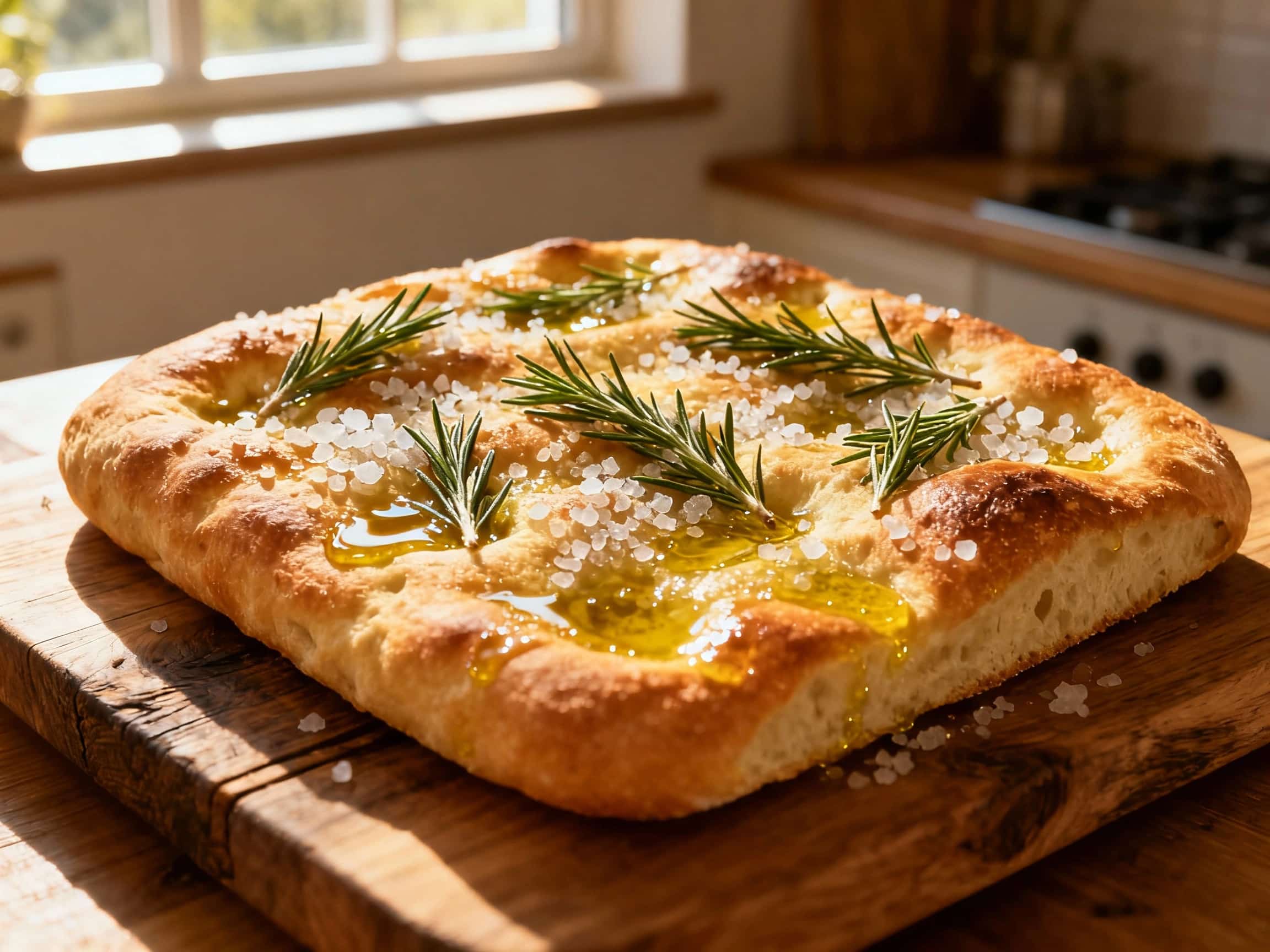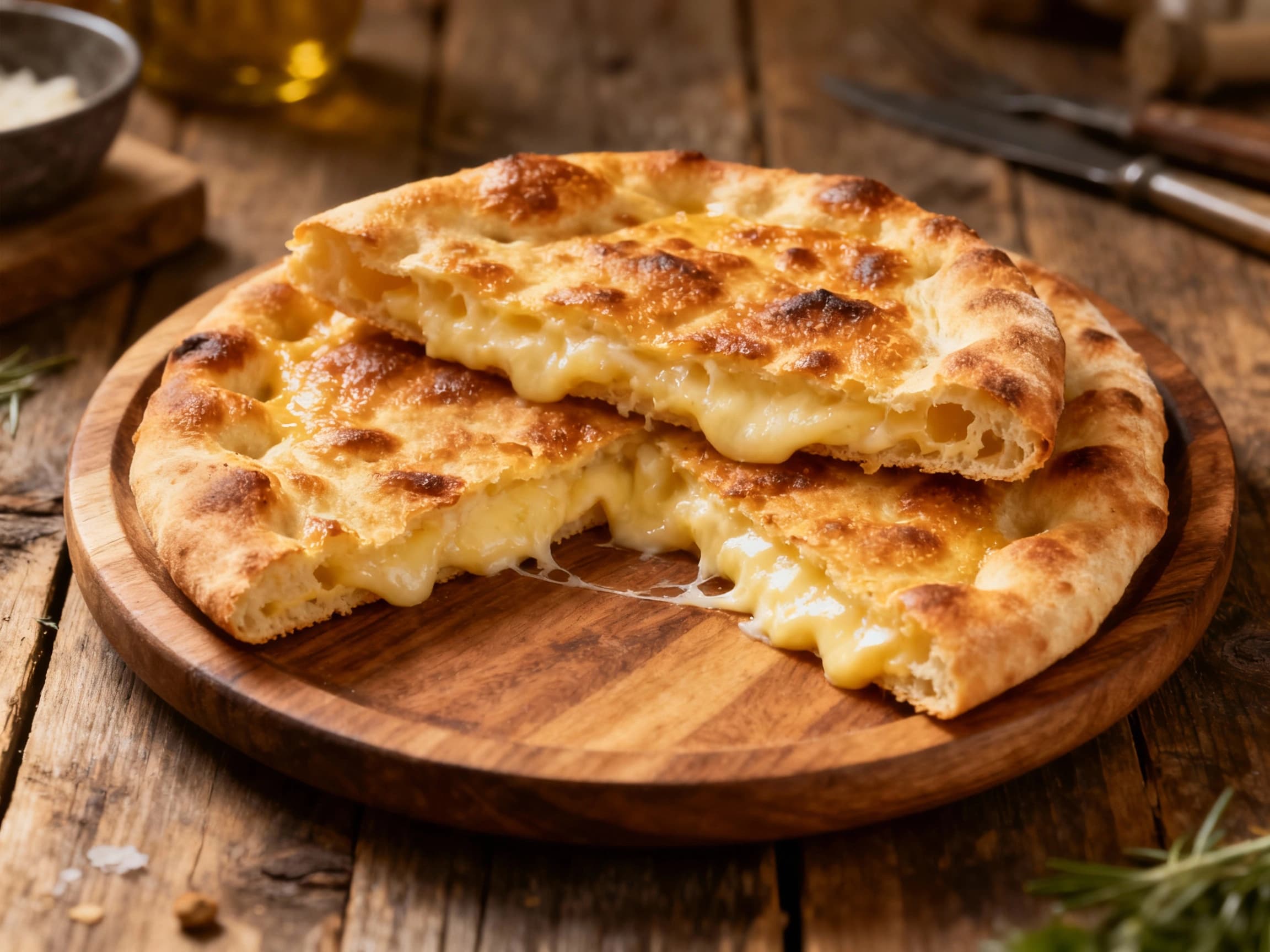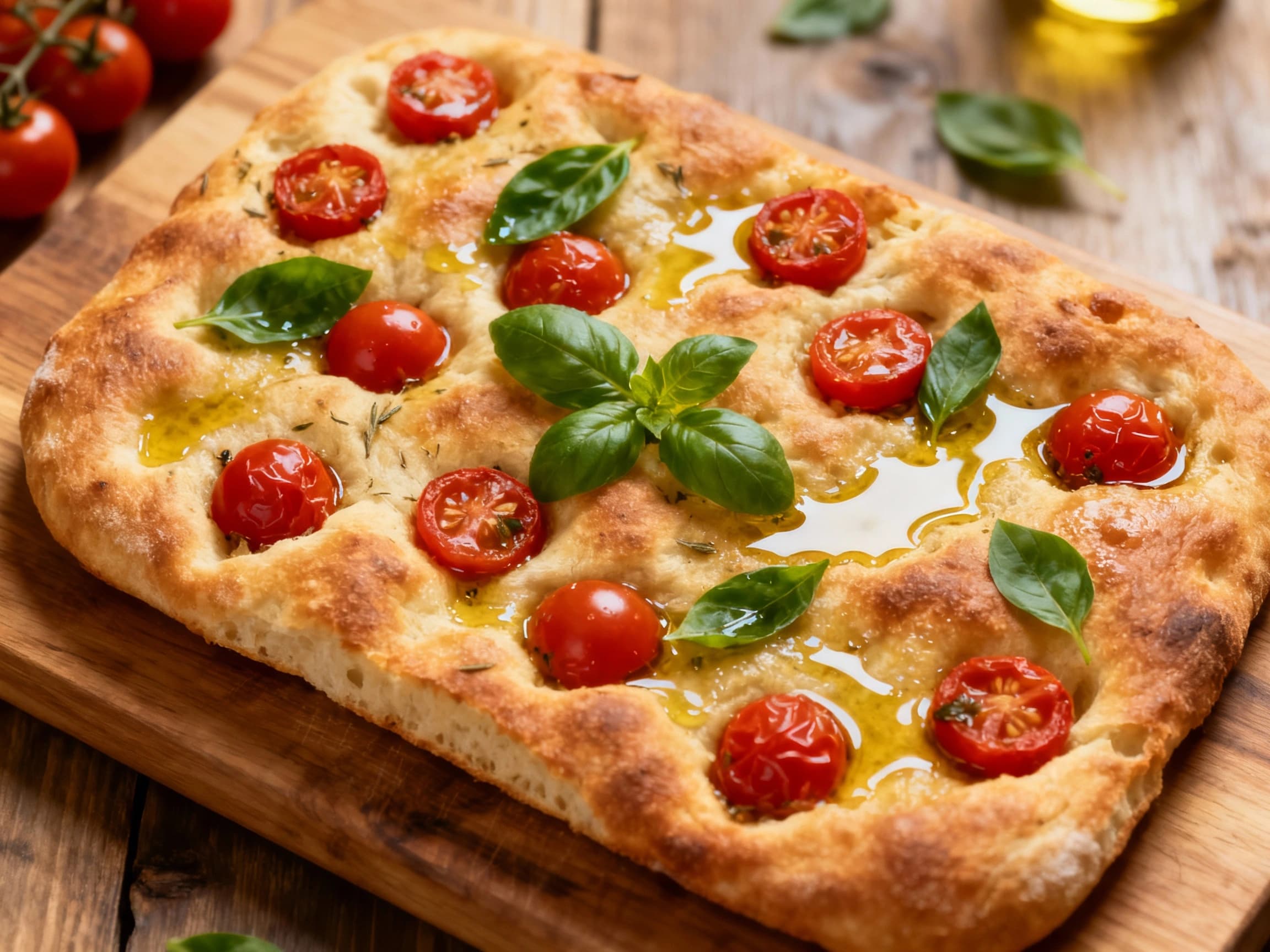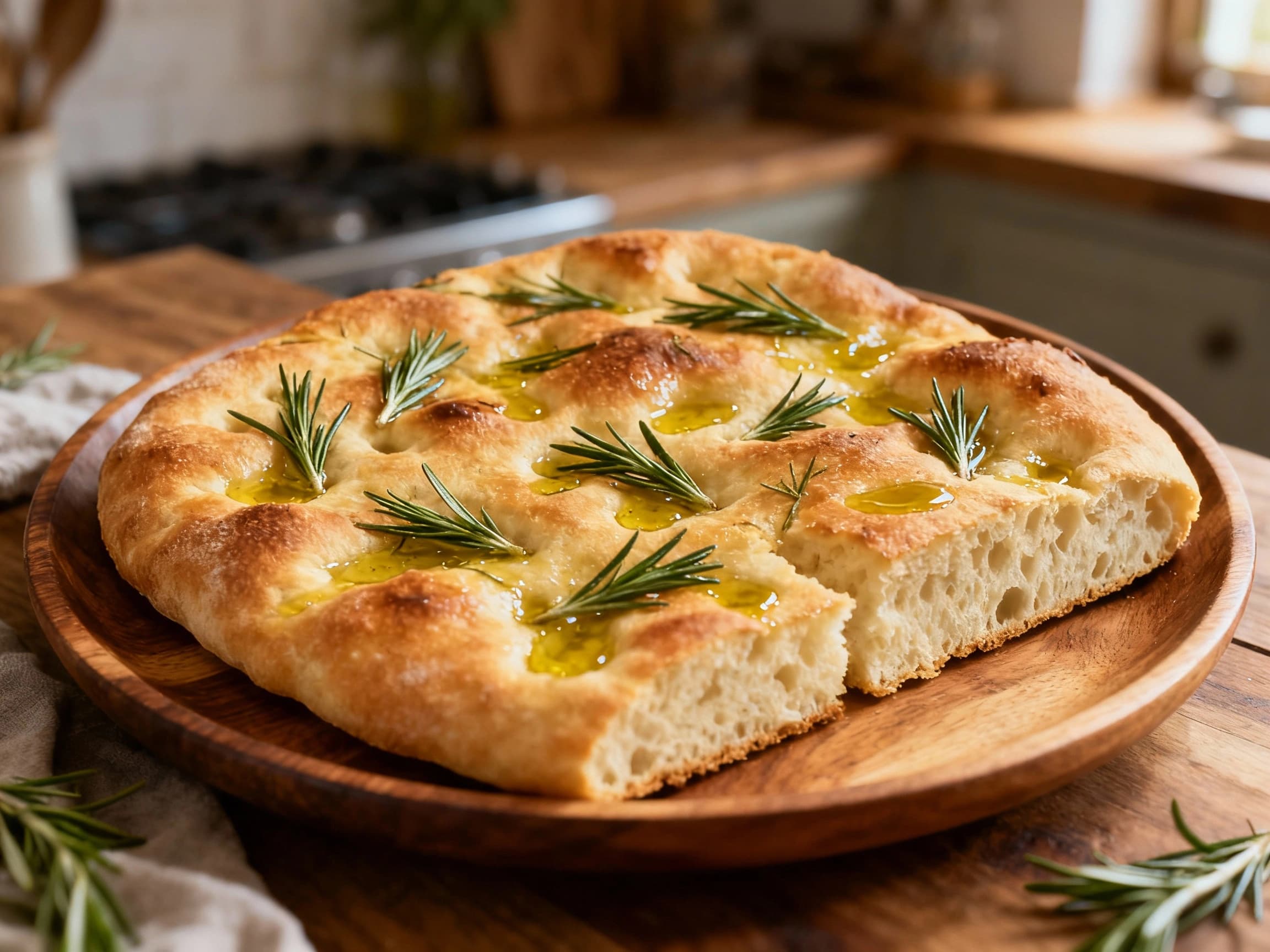
Focaccia
Focaccia
- Country
- Italy
- Region
- Liguria
- Recipes
- 3 Recipes
Origins & Characteristics of Focaccia
Focaccia is an ancient Italian flatbread, believed to have originated with the Etruscans or ancient Greeks, though its most recognizable form rose to prominence in Liguria. The term 'focaccia' itself derives from the Latin 'panis focacius,' meaning 'hearth bread,' reflecting its traditional method of baking in the ashes of a hearth. This simple yet versatile bread was historically a staple for fishermen and farmers, often consumed plain or with a drizzle of olive oil, providing sustenance during long working hours. Over centuries, various regional interpretations emerged, but Liguria's Focaccia alla Genovese, characterized by its dimpled surface, generous olive oil, and coarse salt, became iconic. In Genoa, focaccia is not just food; it's a cultural institution, often enjoyed for breakfast dipped in cappuccino or as an accompaniment to meals throughout the day. Its simplicity allows for numerous toppings, from rosemary and onions to olives and cheese, making it adaptable to local produce and preferences. The dish symbolizes communal baking and sharing, a tradition rooted in its humble origins.
History of Focaccia
Possible origins with Etruscans or Greeks baking flatbreads on hearths.
Early forms of focaccia become widespread in Liguria, evolving from 'hearth bread'.
Focaccia begins to be flavored with local herbs like rosemary and sage.
Focaccia alla Genovese gains popularity as a distinct Ligurian specialty.
Modern bakeries in Genoa standardize focaccia production and widespread consumption.
Focaccia starts gaining international recognition as part of Italian cuisine.


